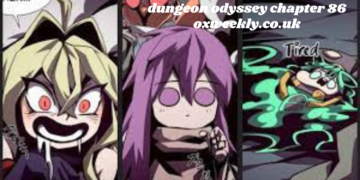Introduction to Korps Sukarela: The Heart of Indonesian Volunteering
“Korps Sukarela” (often abbreviated as KSR) refers to Indonesia’s voluntary service corps that plays an essential role in humanitarian efforts and community support across the nation. The term “Korps Sukarela” translates to “Voluntary Corps,” and these groups operate under a variety of organizations, including governmental bodies, local institutions, and non-profit organizations.
Indonesia, with its vast archipelago and diverse communities, faces numerous challenges such as natural disasters, health crises, and social issues. Korps Sukarela has emerged as a vital force in addressing these challenges, offering services ranging from disaster relief to medical aid, education, and environmental protection.
In this article, we will delve into the origins, structure, activities, and significant impact of Korps Sukarela in Indonesia. We will explore the contributions of volunteers to national development and how these corps have become central to Indonesia’s emergency response systems.
The Origins and Formation of Korps Sukarela
The concept of Korps Sukarela can be traced back to the early days of Indonesia’s independence. As the country faced various challenges, including poverty, lack of healthcare infrastructure, and frequent natural disasters, the need for a structured system of volunteerism became increasingly apparent. The formation of Korps Sukarela was driven by the need for a coordinated, sustainable effort to address these challenges through volunteerism.
The Indonesian Red Cross (Palang Merah Indonesia, or PMI), established in 1945, was one of the first organizations to institutionalize volunteerism through the creation of Korps Sukarela. This initiative aimed to mobilize civilians to participate in humanitarian actions and provide medical aid, disaster relief, and support to communities in need.
Since then, Korps Sukarela has expanded its reach across various sectors. Today, multiple organizations, from government ministries to NGOs, have established their own voluntary corps. Despite the evolution of this movement, its core mission remains unchanged: to harness the power of community participation to support and uplift the country.
The Structure of Korps Sukarela: A Volunteer-Based Organization
Korps Sukarela operates with a flexible and decentralized structure, often tailored to the specific needs of the region or the organization it serves. Typically, these corps consist of volunteers who are organized into different units based on their skills and expertise.
Recruitment and Training
The recruitment process for Korps Sukarela is open to all citizens of Indonesia, regardless of age, gender, or socio-economic background. Volunteers are selected based on their willingness to serve and their potential to contribute to the various tasks at hand. Once recruited, volunteers undergo rigorous training programs to equip them with the skills needed for their duties. This training can include first aid, disaster response, community health services, and logistical support.
Volunteer Roles
The roles within Korps Sukarela are diverse and tailored to the specific tasks that need to be performed. Some of the key roles include:
- Disaster Relief Volunteers: These volunteers are often the first responders in the event of natural disasters such as earthquakes, floods, and tsunamis. They assist with rescue operations, distribute relief supplies, and provide temporary shelter and medical care.
- Medical Volunteers: Trained in emergency first aid and basic healthcare, medical volunteers work in hospitals, clinics, and field operations, offering support to both local populations and disaster victims.
- Community Outreach Volunteers: These volunteers engage with local communities to promote health awareness, environmental sustainability, and social programs. They often provide educational services, distribute food and supplies, and facilitate community development projects.
Leadership and Coordination
Korps Sukarela units operate under the leadership of trained coordinators who are responsible for overseeing the activities of volunteers. These leaders ensure that volunteers are deployed effectively and that the objectives of each mission are met. Coordination between different groups and organizations is crucial, especially during large-scale disasters, to ensure that resources are allocated efficiently and effectively.
Key Areas of Service Provided by Korps Sukarela
Korps Sukarela’s impact is most prominently felt in the following sectors:
1. Disaster Relief and Emergency Response
Indonesia is highly prone to natural disasters, including earthquakes, volcanic eruptions, tsunamis, and floods. In response, Korps Sukarela plays an instrumental role in disaster preparedness and response. Volunteers are often among the first to arrive at disaster sites, providing immediate aid and coordinating relief efforts.
In recent years, Korps Sukarela has been involved in large-scale disaster responses, such as the 2004 Indian Ocean tsunami, the 2009 Sumatra earthquake, and the 2018 Palu earthquake and tsunami. Volunteers not only assist in immediate rescue efforts but also help with long-term rehabilitation and rebuilding efforts.
2. Health and Medical Services
Another critical service provided by Korps Sukarela is in the health sector. Medical volunteers assist in both urban and rural areas, where healthcare access is limited. They provide first aid, conduct health education campaigns, and assist in vaccination programs.
Korps Sukarela has been instrumental in Indonesia’s fight against infectious diseases such as dengue fever, malaria, and tuberculosis. The organization also plays a significant role in responding to public health emergencies, including pandemics like COVID-19, where they help distribute medical supplies and provide healthcare services.
3. Environmental Protection and Conservation
Environmental issues such as deforestation, pollution, and climate change are also key concerns in Indonesia. Korps Sukarela has expanded its efforts into environmental conservation, with volunteers participating in tree planting campaigns, waste management programs, and environmental education initiatives.
Through collaboration with local governments and environmental NGOs, Korps Sukarela has made notable strides in raising awareness about environmental sustainability and mobilizing grassroots action to protect the country’s rich biodiversity.
4. Community Empowerment and Education
Korps Sukarela volunteers often engage in community-based development programs. These initiatives focus on education, poverty alleviation, and social justice. Volunteers work with marginalized communities to empower individuals, improve access to education, and promote socio-economic development.
By fostering local leadership and facilitating skills training, Korps Sukarela helps enhance the capacity of local communities to address their own issues in the long term.
The Impact of Korps Sukarela on Indonesian Society
The contributions of Korps Sukarela are invaluable in shaping Indonesian society. Volunteerism has fostered a sense of solidarity and unity, particularly in the face of adversity. The dedication of volunteers to their communities has helped build resilience in regions that are most vulnerable to disasters and social challenges.
The role of Korps Sukarela has extended beyond direct humanitarian aid; it has created a model of community-based service that encourages active citizenship and social responsibility. In turn, this has helped strengthen social cohesion and foster greater national pride.
Additionally, Korps Sukarela provides young people with an opportunity to engage in meaningful work and develop personal and professional skills. Many volunteers go on to pursue careers in healthcare, disaster management, and other social service sectors, carrying forward the values of service and compassion.
Challenges Faced by Korps Sukarela
Despite the remarkable impact of Korps Sukarela, there are several challenges that need to be addressed:
- Funding and Resources: While Korps Sukarela receives support from various organizations, financial constraints remain a significant hurdle, particularly during large-scale disaster responses. Securing sufficient resources for training, equipment, and supplies is an ongoing challenge.
- Volunteer Retention: Retaining volunteers, especially in the long term, can be difficult due to the demands of the work and the temporary nature of many volunteering opportunities.
- Coordination Issues: With multiple organizations involved in disaster response and other services, ensuring effective coordination between groups can be complex. Miscommunication and resource duplication can sometimes hamper the efficiency of relief efforts.
Conclusion: The Future of Korps Sukarela in Indonesia
Korps Sukarela is an enduring symbol of Indonesian volunteerism and community spirit. Its contributions to disaster relief, healthcare, environmental protection, and community empowerment continue to transform the country. As Indonesia faces new challenges in the coming decades, the role of Korps Sukarela will undoubtedly remain vital.
Looking forward, it is crucial to enhance the capacity of Korps Sukarela through better training, improved resources, and stronger collaboration with government and non-government organizations. By addressing current challenges and expanding its reach, Korps Sukarela can continue to serve as a powerful force for good, bringing together individuals from all walks of life to contribute to the nation’s progress and development

































